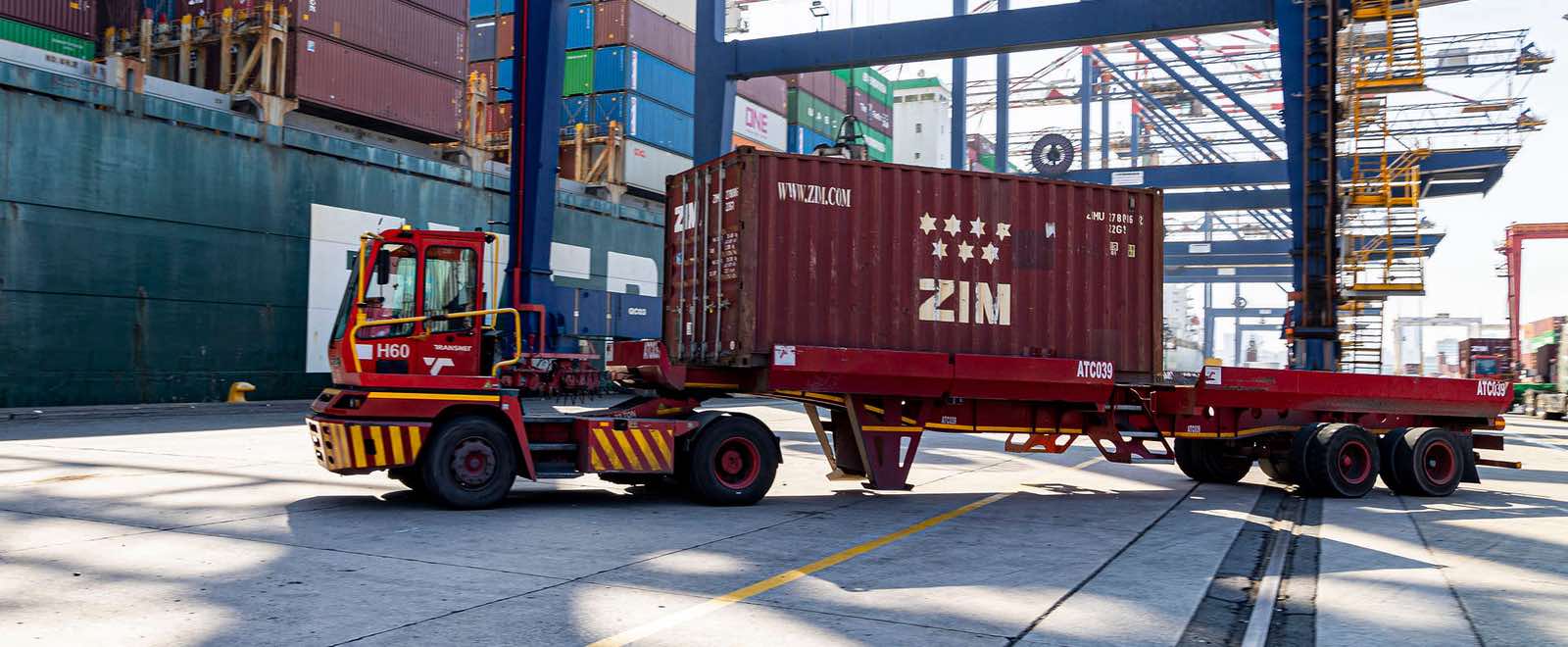Can Transnet’s Bid To Implement Procurement Reforms End Tenderpreneurship?
Caption:
Shipping container about to be loaded on a vessel
📷 SUPPLIED
Transnet’s push to cut out middlemen has set off a high-stakes battle, led by some of the country’s most experienced reformers.
Andile Sangqu, Transnet’s chairperson and a respected turnaround strategist, is at the helm of this policy shift, backed by Transnet’s board. The changes are rooted in a blueprint crafted by Kenneth Brown, a former chief procurement officer in the National Treasury, who was instrumental in developing government’s early procurement reforms about a decade ago.
In 2016, Brown warned about government’s excessive reliance on intermediaries and middlemen suppliers, arguing that they drive up costs without improving services or delivery outcomes. He suggested that government could save money if it bought goods directly from the original manufacturers instead of middlemen, also known as tenderpreneurs.
Cutting Out the Middlemen
At its core, the policy bans contracts involving intermediaries or agents between Transnet and original equipment manufacturers (OEMs) and original parts manufacturers (OPMs). Instead, the transport and logistics parastatal is insisting on direct deals with OEMs and OPMs; a sharp departure from traditional procurement practices where middlemen were involved in large deals, seemingly to advance black economic empowerment (BEE) and localisation policies.
The new policy is contained in a 61-page procurement manual, approved by Transnet’s board in September last year, which directs the parastatal to procure goods and services in a manner that saves costs, improves customer service, and boosts revenue.
Sangqu’s board is adamant that this policy shift will restore integrity to procurement and slash inflated costs that have dogged Transnet’s finances. Eskom, led by board chairperson Mteto Nyati, has also adopted a similar stance, signalling a coordinated effort among state-owned enterprises (SOEs) to root out entrenched inefficiencies.
The Backlash—and Familiar Names Surface
Not surprisingly, the reforms have already triggered fierce resistance against Transnet, a parastatal that operates a fleet of freight trains, seaports, and petroleum pipelines. The resistance became obvious after the parastatal began implementing the procurement manual soon after its approval.
In September last year, it cancelled three tenders for acquisition of a fleet of 22 new dockside-rail mounted jib cranes. The cranes are needed for conducting repairs and maintenance on ships docking at the ports of East London, Durban, and Cape Town. The jibs are overhead cranes with horizontal arms for hoisting and moving heavy objects.
Transnet initially went shopping for the cranes in February last year to replace old jib cranes in Durban, East London, and Cape Town. In the previous tender process, local companies were allowed to bid for the jibs tenders.
However, a new tender issued in May this year, which has combined the three previous tenders into one, only invited OEMs to bid, excluding local companies that previously participated in the initial tender process.
But this has caused unhappiness with Channel Construction, one of the local companies that partnered with an international OEM to participated in the previous tender process to supply jibs to the East London harbour. The Durban-based engineering and construction firm filed an application at the Johannesburg High Court to interdict Transnet from going ahead with the new tender.
Effectively, the new tender has nullified Channel’s previous bid for the East London tender.
Transnet is going ahead with the new tender despite the lawsuit.
Why This Fight Matters
Transnet’s procurement overhaul has become a high-stakes test case for reforming SA’s embattled SOE procurement systems.
Supporters argue that too many middlemen have historically acted as mere conduits for inflated deals, often linked to political networks and corruption. Cutting them out, they say, is a critical step towards removing unnecessary cost layers and rescuing Transnet from its financial woes.
Critics warn, however, that the exclusion of intermediaries risks harming small businesses and black economic empowerment, particularly in sectors where few OEMs have a domestic footprint.
Navigating the Legal and Political Fallout
The legal complexities of Transnet’s policy could soon be tested in court or at the Competition Commission, especially if local companies allege anti-competitive behaviour or discrimination against domestic suppliers.
Reformers like Sangqu, Nyati, and Brown may feel that the risks that come with new reforms are outweighed by the potential benefits: lower costs, fewer corruption risks, and long-term operational sustainability for government entities and SOEs.
Industry analysts say the key for Transnet and Eskom will be to balance cost reduction with supplier diversity by:
Whether this bold strategy succeeds, or triggers a regulatory backlash, will have far-reaching implications for SA’s entire public procurement landscape.


